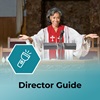Dave Enns has a big heart for people and deep desire to see them transformed by biblically functioning community. Dave is the Pastor of Life Groups and Adult Ministries at North Coast Church, a multi-site church in Southern California, where he has served for over 30 years. North Coast is a cutting-edge, influential church that has been a pioneer in both the multi-site and small groups movements. Dave has a proven track record as a wise and consistent pastor leader. North Coast is also a pioneer in connecting small group curriculum with the weekend sermon.
Dave, you’ve been at North Coast Church in Southern California for over 30 years. While many will know the name Larry Osborne, who led the church for many years, they may not know much about some of the features of your church. Share some snapshots of the ministry.
A lot has happened over the years! When I joined the team, we were about 700 people meeting in a Seventh Day Adventist church building. Now, we’re on seven campuses with about 13,000 attending pre-COVID. We’ve worked at keeping it simple through all the growth. Here are three of our key focuses of ministry.
Probably what we’re best known for and one of our major measurements of spiritual health is having a high percentage of adults connected in our groups. One of the primary needs every person has when they walk through the doors of any church is to be connected in relationship—with God and others. That’s why we do all we can to not only teach the Word but also to get our people connected in relationship. We don’t see community as secondary to Bible study; the two are designed to go hand in hand. There is incredible power in Christ-centered community (Hebrews 10:24-25; John 13:35). Without it, the Christian is in spiritual and relational deficit. It’s one of the enemy’s subtle strategies to keep followers of Jesus powerless and defeated. This is why our percentage in groups is so important to us.
The big joke is, as the lead Groups Pastor, I have the only job description everyone knows about—everyone knows that our goal is to maintain at least 80% of our adult weekend attendance in groups. This is also why, as far as programming, we really only focus on two things—weekend services and groups—so we aren’t competing for people’s time with other ministry opportunities. Fortunately, we’ve been able to maintain a high percentage of people in groups throughout our history. In fact, for the last ten years, we’ve been able to be at the 90% mark, which has also helped us incredibly through this pandemic.
This is not to say our weekend services aren’t important. Offering an engaging full-service weekend worship experience including infant to high school ministry options is vital to all our campuses. These options help create a relevant relational connection for all ages and stages. It’s the place where you can come as you are, bring a friend, and experience worship and teaching targeted for you.
The third key feature I would say is our commitment to community service. We don’t just want to be about going to church, but rather being the church by being the hands and feet of Jesus in our community. Leveraging groups to do this has had a tremendous impact, not just in the community, but also the connection it creates within a group as they serve together. It took some work to launch, but we’ve found that the many partner organizations we work within our community, even during COVID, depend on our people serving. For years, we’ve been averaging two service projects per day!
North Coast has been a leader in the small groups movement for many years. What are some of the strongest elements of your groups ministry?
The first thing that comes to mind is that we offer a doable commitment of 10-week quarters: fall, winter, and spring, with everyone taking the summer off. The quarter system allows people to switch groups if they want or even take a break from groups without “breaking” a commitment. We’ve also built in an “escape clause” for those who are worried about signing up for a group that doesn’t fit because we know good people don’t always connect. We tell them if they find out their group isn’t a good fit in the first two or three weeks of meeting, to give us a call and we’ll do all we can to help find a group that does.
We’ve also found forming our groups by stage of life, as opposed to geographic location, helps strengthen the connection in groups. It’s no surprise that the more people have in common, the easier the connection is. How you do life daily when you’re a parent with pre-K kids versus a parent with older teens is so different. Here’s how true we found this out to be: Years ago, we started our groups ministry with what we called “general” groups— any age and stage. As we grew in number of groups, we were working on how to divide them pastorally to provide care. Should it be by location or stage of life? To our surprise, it was already done for us. Most of our groups had already formed by stage of life. Affinity by far was more important than proximity.
Our sermon-based approach to small groups has proven to be another key element. We have what we call a lecture lab format. We listen to the message at the weekend service, then process it together as a group later that week. I thought that was genius when I first came to North Coast. When I say genius, I don’t mean new. This had been around for years in youth ministry. We knew that kids retain more of what they are taught if they can process it with others. And if we could help them build quality friendships, we knew their spiritual success was more likely, but unlikely if they didn’t (I Corinthians 15:33). It’s one of the fundamental reasons we do groups in youth ministry.
As adults, we are no different, but for some reason we think we are. The hope of any teaching pastor would be that their congregation would go home and process how the weekend message could be integrated into their lives. People hearing the message often think they want to integrate it or talk about it when they get home or with some friends, but they typically end up forgetting about it, not finding the time, or not having a friend or family member who is ready to engage. This is the beauty of sermon-based groups. It helps people do what they want to as a follower of Jesus and what the Holy Spirit is motivating them to do— to connect and process together what God’s word is teaching them to live it out (Philippians 1:27; Colossians 3:14; 2 Timothy 3:16-17, Ephesians 2:10).
Let’s talk more about the sermon-based studies. First, why did North Coast embrace this method?
We actually fell into doing this a bit by accident. Years ago, we did a series called “Company of the Committed” and asked all our groups to use it as their focus for their discussion throughout the series. The results were noticeable almost instantly, but not just in groups. The posture of people paying attention during the weekend message and taking notes significantly increased. It’s still this way today. We notice the difference in the room when groups are meeting or not. Not surprisingly, this past fall, our number of online views of the sermon once again jumped by almost 30% when groups started meeting again after the summer break.
As far as groups themselves, it also leveled the playing field when it came to discussion. The long-time Christian or more academic person no longer had something up on those who weren’t—they were all listening and experiencing the same content about which they were going to have a discussion.
It also created a much easier catapult for people to answer the Bible study and application questions on their own before group time. They no longer had to start from ground zero on a new study or be the most disciplined person in the group to get the most out of the study. It’s like they were given an “authorized cheat sheet” that offered an extra in-depth understanding of the topic the group was going to cover because it was laid out for them from the weekend message. People were much more likely to read the Bible on their own than before.
As a result, group time now had become much more about processing, applying, and caring for each other as opposed to just studying. We found most Christians don’t need another Bible study during the week as much as they need to work out how to put into practice the one they already heard with people who care about them. We knew at that point there was no turning back. And now, 34 years later and we’re still full steam ahead!
How do you generate a study guide every week? What does that process look like?
Many think the only way to pull off writing quality sermon-based questions is to have the topic weeks in advance. We wish we did, but we don’t, and never have. The style of our teaching team (and most others) is they are figuring out the topic and sermon the week of, so we are essentially writing on the fly. Each week, we have a sermon prep meeting where the teaching pastor begins to process what they will be teaching that coming weekend. From that meeting, we typically come away with an “idea” of what the message will be about. Yep, you heard it right, just an idea. Sometimes the idea is well-defined and on occasion we even get some general points, while other times it can remain quite vague.
Most of the meeting is spent on sermon development, not the potential questions for groups. From there, we’re off writing questions that are not just focused on Bible study, but also designed to generate discussion everyone in the group can engage in, keeping in mind the many differing perspectives a diverse crowd can have even when they hear the same message. Our sermon notes and study questions are then finalized on Thursday so they can be printed and published in time for the weekend services.
What does it look like? Is this a slick looking printed booklet or a simple PDF download? How important is the look of the curriculum?
Our look is simple. The sermon note sheet and group questions are in the same document in the bulletin and also downloadable online. We work hard at making it not look too long or academic. Digitally, we offer it in multiple formats (word doc, PDF, webpage, app note taker, etc.) to allow people to choose what fits them best.
Some churches employ sermon-based curriculum in order to drill down on content. For you, it’s also a way to build community. I think most of us are familiar with that first part, but how does a curriculum foster community?
This, I believe, is one of the fundamental pieces that is subtle, yet significantly missed not only in sermon-based groups, but in small groups in general. Of course, most churches would acknowledge that community is important or even a primary reason groups are meeting. Unfortunately, all too often, it’s left as a natural byproduct of groups meeting with little to no intentionality or awareness of what we call “rhythm of relationships.”
The thought is people are meeting together in a relational setting—it will happen… right? Of course, it does happen to differing degrees depending on the group and personalities within it. But how many times have you seen the opposite happen with people not connecting in a group, retention being an issue for groups overall, and new people joining but not able to fit in? Interestingly enough, usually it’s not because they didn’t do Bible study, but rather because the group curriculum and system weren’t set up to navigate the ebbs and flows of relationships.
Here are a few of the simple but significant things we do to help create a rhythm of relationships in our groups. The first one I already mentioned: our quarter system in which groups meet for 10 weeks. It makes joining a group doable and safe. It’s not too big of a commitment, and there’s a way to get out if you need to.
Second is how we write our questions. The sermon-based piece helps with a natural connection from the start without a ton of extra effort. How we write the questions varies depending on which week we’re in during the quarter. Obviously, earlier in the quarter our questions aren’t digging in as deep as people don’t know each other as well. We also tend to break the rule of asking only open-ended questions to create discussion. For example, an open-ended question asks, “What do you think about (fill in the blank)?” It assumes the person has thought about the topic and puts pressure on them to come up with an answer.
As a result, they could feel as though they are not in the know or on the same playing field as the rest of the group. We would rather help them feel safe by tweaking the question to be closed-ended like this: “Have you ever thought about (fill in the blank)? If so, explain.” Suddenly, now it’s okay to not have the answer, yet it still helps the group engage. We also work hard at making the questions not just be content or fact-finding, but to also include personalized application where everyone is able to offer a unique answer.
And finally, the structure within each of our quarters helps promote the flow of relationships. The first meeting is a welcome party that includes a potluck, what they hope to get out of the group time, and some guidelines on how to make your group times great and hear from everyone every week. During the quarter, we ask our groups to plan a social during one of their meeting times and a service project. The last meeting of the quarter is key. It’s typically a celebration and a look back on how they have been encouraged, how God has grown them, and Communion. It also leaves them with a short two-minute feedback form to comment on their group experience. Healthy relationships always allow feedback, both positive and possible areas of improvement.
All of what I’ve mentioned above are what we would say are essential ingredients of creating an effective rhythm of relationships. People need help on how to connect beyond just reading their Bible. It’s this intentional rhythm and God’s word at the center that we believe has provided for us remarkable retention of people in groups and keeping our leaders over the long haul. We say community is not secondary to Bible study. It’s what Bible study is guiding you to do—to be in relationship with God and those around you.
Our modern culture is fiercely independent. Are your groups ever permitted to choose their own study? How do you keep your groups literally on the same page?
You’re right, independence is incredibly important to people. That’s why, right from the start, we tell our leaders they have the freedom to adapt and even create their own questions to fit their group’s needs. We also stress that groups don’t exist to answer questions, they exist to help us gain support and interact on the issues of life based on what the study has brought about, along with life that week! Of course, groups at times want to try other studies. They may want to do a marriage study or find a book on a certain topic that interests them. We’re okay with that. But we do ask all new groups to start as sermon-based for at least a quarter and then decide if they want to try another curriculum after that.
Surprisingly, many never switch from sermon-based because they see how effective it is. When a leader does opt-in for the change, we suggest they start by picking three or four chapters and not an entire book. This gives them the option to decide to do more if it’s working great or bail out if it’s not. I think we all too often forget very few people finish books. Most books have chapters that are worth skipping. And most studies aren’t designed to build relationships.
How do you evaluate the process to make sure it’s working the way you want it to? Do you seek input from group leaders?
Every healthy relationship allows feedback, both positive and negative. So, it’s a big deal to us. We don’t want to just be anecdotal; we want to know what people think and get real measurements of success. On the micro side, at the end of each quarter, every person in a group is sent a feedback form to evaluate their group experience, the group leader’s effectiveness, and the quality of the questions to engage them. I should add, we never take or look at anonymous feedback.
As I said, we take feedback seriously, but if we can’t qualify a comment, then we can’t effectively follow up. On the macro side, we look at five areas to measure our overall health of groups: percentage of adults in groups, number of new sign-ups, weekly attendance and retention in groups, leadership recruitment and retention, and percentage of groups engaged in community service.
If a small group director or leader wanted to start using the weekend sermon as the basis of their small group curriculum, where could they start? Are there some “baby steps” you might suggest?
Start with trying to set up some type of sermon prep meeting with the teaching pastor. This is typically one of the biggest challenges. Know this, most teaching pastors aren’t preparing far in adva and that’s okay. Work within their style and help them to see you don’t need all the points of the message. Even an idea can work. And if that’s still too much of a stretch, you can opt to write questions after hearing the message and post them or send them via email. Of course, there’s high value in getting them out before, but you have to work within your context.
Second, would be to set up some test groups to run at least three to five weeks to figure out the flow of writing questions and details needed to offer the support your leaders and groups will need. All too often, great ideas fail simply because we don’t test run to work out the kinks.
Third, create a leaders’ guide, starting day one. Most people outside of North Coast have no idea we do this! We have found it foundational to our leaders’ success and is a key factor in the recruitment and retention of leaders. We offer it every week. It started as a 12–16-minute cassette tape we gave to our leaders offering them extra questions and Scriptures to add to the sermon-based questions the groups receive. Now it is available online, as a podcast and in Word doc and PDF form. 70% of our leaders are continuing to access it every week.
What didn’t I ask, but should have?
One of the simple things we repeatedly remind our leaders is to hear from everyone every meeting and keep God’s Word at the center. This is how we define what a successful meeting looks like. Most would say they feel like group was a success if they gained a spiritual insight, a verse caught their attention, sin was confessed, prayer time was good, or they really liked our dessert! All of those are good things, but they may not happen at every meeting or for every person. So, we keep this really simple—if you hear from everyone and keep God’s Word at the center, your relationships and trust on each other will grow. It’s also going to cause the leader to lean into using facilitation skills and drawing people out, and not move into the master teacher mode which so often happens. This keeps the groups functioning as a group should, everyone engaging, listening, and learning from each other and what the spirit is teaching them.
Dave, thank you for sharing your wisdom with us! How can a reader connect with you or learn more about groups at Northcoast?
To connect with Dave email dave@northcoastchurch.com or follow on Instagram @davenns
To find out more information about Groups at North Coast Church:
- North Coast Training https://northcoasttraining.org/nextlevelworkshops/#groups
- North Coast Church Groups https://lifegroups.northcoastchurch.com/
Here are some Specific Resources:
- Small Group Leader Training Kit - https://northcoasttraining.org/product/small-group-essentials-training-kit/
- Sermon-Based Starter Kit - https://northcoasttraining.org/product/sermon-based-small-groups-starter-kit/
- Sticky Church - https://northcoasttraining.org/product/sticky-church/








